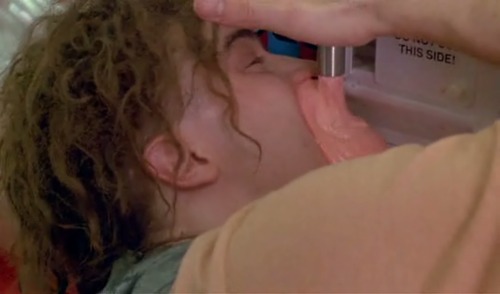Guest post written by: Mike Ritter
My boss is an asshole. Screw him. Wait, hold on I forgot, I need to text my wife back. Where was I? Ah yes, my manager here at the club. Maybe I was a little late yesterday, but it’s the first time my alarm hadn’t gone off in a few months. Then of course there was a train slowly creeping across HWY 60 at 5:55am, how am I supposed to plan for that? Hold please, my wife just texted me back. I love this woman but she text’s like a stenographer. So I’ve been written up for being late to work because of something out of my control? Complete B.S., I give this company 14 hrs. a day, 8 days a week and now I’m over it homie. I just texted my buddies and we’re headed out to the Sloppy Pelican after work. Time for some me time!
Stress Debt
You’re not you when you’re hungry. You’re also not you when you are a raging, multi-tasking, stressed out dragon. Does this person sound like you or anyone you know? Do you have this dragon inside you right now? Chances are when stressors affect you the most, you’re health is declining as well. The biggest mistake we make is misunderstanding the soul crushing effect that stress has on our health. If stress was currency, your cardiovascular system is paying a principle plus compound interest for days, months years at a time before eventually it can’t keep up. Then…foreclosure. The best way to combat weight gain and declined health caused by stress isn’t to join the pro tour and have a dramatic comeback win against Shooter McGavin. It’s to understand how stress affects our behaviors and acknowledge it and make different choices. I know, novel concept. But you can beat this! Specifically let’s focus on how stress causes sugar and starchy carb cravings.

Grandma we’re gonna get the house back!
Stress and Appetite
As explained in part 2 of my stress series, a stressed state is complex but not all that confusing. When you encounter a stressed event (mentally or physically) your appetite is suppressed, your brain asks your body to mobilize all stored glucose in the blood to your big gigantic muscles. This amazing system is designed to ignite within seconds of encountering a stressor. However, it was designed to respond to natural stressors. Our systems are also wired to respond in the healthiest manner to fairly acute stressors such as healing wounds and short duration (under 10-12 minutes) or so events such as battle or the modern day version called a workout. In these scenarios your body prioritizes mobilization over digestion, ergo your appetite drops. The blessing and curse we have as humans is that we can also imagine stressors. In my opener I hope you realized how familiar and common that character is in our lives, albeit yourself or a friend. In that manic state, we humans actually ignite the same stress response by having a stressful thought as someone who is actually experiencing a stressful event. The difference is the person in a heated battle against two 60lb dumbbells is mobilizing glucose to hospitable muscles. They welcome the glucose and put it to work. The person sitting at their desk piled behind stacks of papers, while managing his parent’s flight plans into town for his son’s birthday party at the bowling alley is still mobilizing glucose. However, once the new glucose arrives to your cells, they get off the couch, answer the door and then politely refuse the order.
Wheezing the Juice
I’m off for the day now give me sugar! Earlier that day, while you’re fuming about your boss, the stress response kicks off in the brain by the release of a neurotransmitter called CRH Corticotropin releasing hormone (CRH) Adrenocorticotropic hormone (ACTH), also known as corticotropin. Those two hormones enter the blood stream within seconds like a Jimmy John’s delivery man. You’re alert and you’re appetite has now been turned down because, unless you are a marathoner cramming gummies, you have no inherent need to stop and eat during this presumably distressful time. After about 8 minutes hormones called glucocorticoids reach their peak in the blood stream. Glucocorticiods responsibility is partly to recall the digestive system back to full operation. As long as CRH and ACTH outnumber the glucocorticoids, appetite suppression will remain a priority. However, once CRH and ACTH decrease (within seconds) your appetite will begin to return back to normal craving starchy and fatty foods to replenish all of the depleted energy utilized. This primal mechanism assumes you actually experienced a physical event. But what happens when you don’t? And what happens during sustained stress?

Most people who struggle with stress management and weight gain, often have days with intermittent, but fairly sustained levels of stress. The key word “intermittent” is very important here. Glucocorticoids take about an hour or two to completely be washed from the blood stream, which means your appetite can be elevated a full two hours after a stressful event. When your boss comes and asks for the TPS reports, your stress levels rise. He leaves and twenty minutes later you find out that the corporate office has moved your presentation up to tomorrow; a presentation which you have not completely finished. Among a thousand other things you are trying to manage at the time, your appetite is either suppressed or intermittently ravenous. Repeated stressful events throughout the day keeps this cycle in full rotation all day long without ever coming to a complete stop. Given that CRH enters and leaves the blood stream rather rapidly, your alarm system keeps getting refreshed with every new event. Meanwhile, remember how glucocorticoids need their full hour or two to wash out of your blood? That’s provided you are stressor free for that entirety. If not, you are riding a totally rad crest of this appetite igniting hormone. You may deal with this in one of two ways as well. As soon as CRH leaves the blood stream your starchy cravings can come quickly or slowly, making it easy to snack frequently or put off the shame until it’s binge time. Whether you snack all day or are a binger, the difference seems to be whether your liver tends to secrete more or less glucose at a given time and obviously your emotional tie to food. If you release a lot at once (hyper-secreter), you are going to have more cravings throughout the day. If you tend to release less (hypo-secreter), you are more likely to suppress your appetite throughout the day and then binge on starches late at night. That’s when you wheeze the juice.

Ways to help solve stress related sugar cravings:
- You can perpetuate insulin swings by chowing high glycemic foods throughout the day. If you are fairly sedentary and trying to keep your starchy carbs low, aim for full fat low carb snacks such as grass fed butter, higher fat means, avocado and coconut oil based dishes.
- Take frequent breaks for breathing practice. Just because your environment elicits stressful situations, it’s your response to these situations that determines the outcome.
- Workout ya dummy. Clearly one of the stress relieving benefits of exercise is mobilizing that excess blood glucose hanging around to be utilized. Get it moving and you won’t have to worry about the buildup and storage of stress related fat tissue.


Very well written, I knew stress was a major cause of weight gain. After reading your post I am even better informed.
Hello! I am also a stress eater that is why I have on and off weight issues. Fortunately, my boyfriend and I are going to the gym at least three times a week to relieve stress and I must say that it is working good. 🙂
This is an excellent article, tackling an issue that has been silently killing for many years. Highlighting these challenges in modern society is crucial for not only behavior change, but a much needed cultural shift as well. Health is wealth.
P.S. Very well written Mike, glad to see you’re doing extraordinary things!
This was so informative and fun to read! Thanks!
Thanks. Timely read. My Stress-o-meter is off the charts these days.